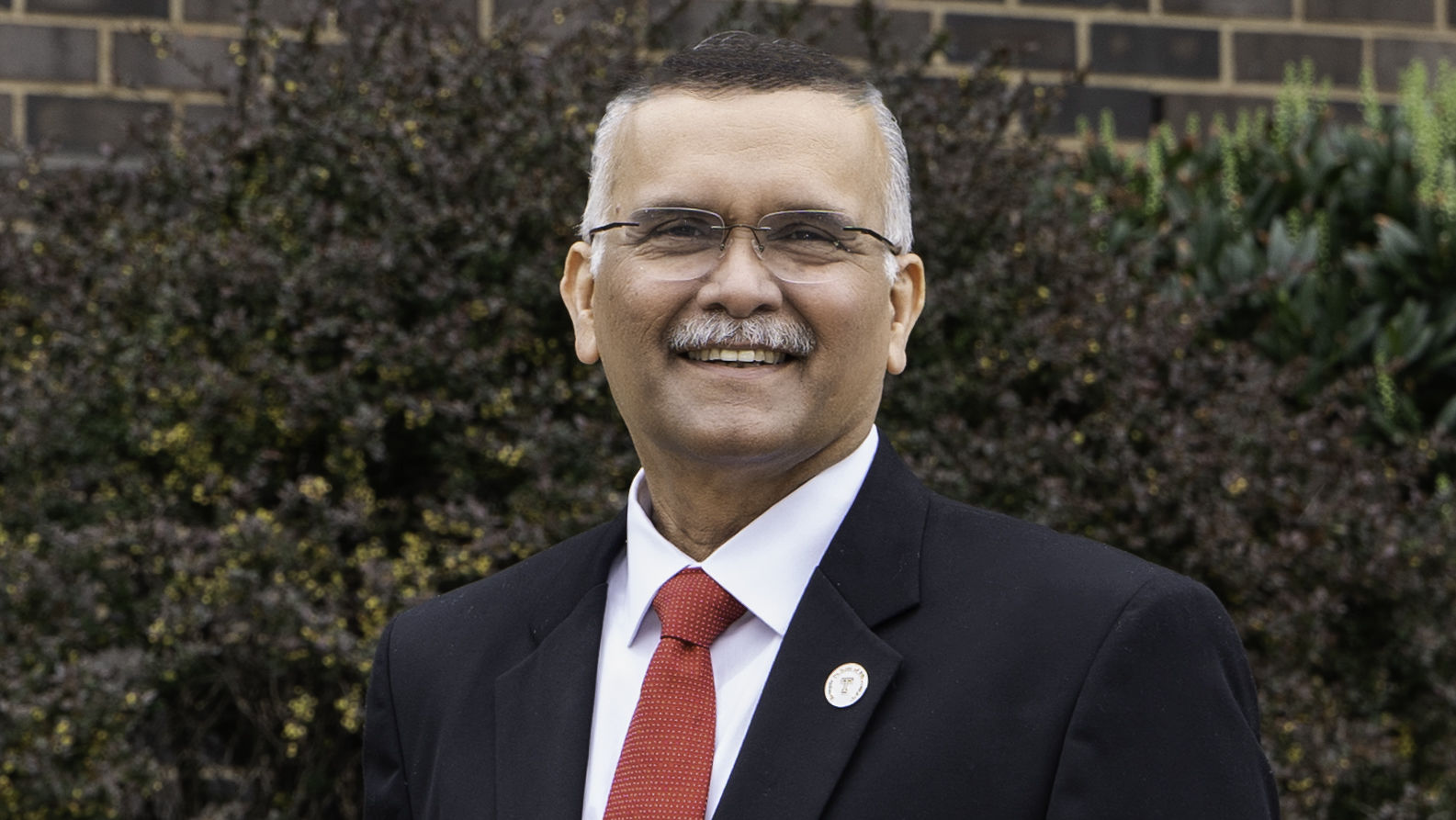School of Pharmacy dean joins Walgreens Deans Advisory Council
S. Suresh Madhavan, dean of Temple University’s School of Pharmacy, joined the Walgreens Deans Advisory Council in March. The council focuses on addressing key issues including pharmacy school enrollment and staffing issues.

S. Suresh Madhavan, dean of the Temple University School of Pharmacy, has been named to an advisory group focused on enhancing the pharmacy profession.
The newly formed Walgreens Deans Advisory Council consists of company executives and deans from 17 pharmacy schools. The council held its first meeting in March and will convene quarterly to discuss attraction and retention strategies for future pharmacists.
Madhavan brings a background as an accomplished leader and researcher to the advisory council. He joined Temple’s School of Pharmacy on March 1 after serving as dean of the University of North Texas Health Science Center System College of Pharmacy in Fort Worth, Texas.
“I am honored to have been selected from the region,” Madhavan said of being named to the council. “This is something that is extremely important to the pharmacy profession and pharmacy academia. It’s a great partnership and I look forward to working with the leadership and my peer dean colleagues.”
The council’s formation comes as pharmacy schools are facing a sharp decline in applicants. Applications dropped 22% in the 2022–2023 academic year compared to the previous year and have decreased by more than 60% during the past decade, according to Walgreens.
There are various factors leading to lagging enrollment at the nation’s pharmacy schools.
Madhavan said the decrease in applications can be attributed to several reasons. One factor is the proliferation of pharmacy schools within recent years. The U.S. had 80 pharmacy schools in 2000, but by 2020 the number grew to 143, according to a Pharmacy Times article.
“When you look at the increase in schools, then you can understand that the applications are spread over a number of schools,” Madhavan said.
Another significant factor is the stress faced by community-based pharmacists that may deter some from the profession. Madhavan said many pharmacists working in community settings have concerns about the workload balance.
Community pharmacists’ responsibilities include consulting patients, supervising technicians, renewing prescriptions, and spending time talking with doctors’ offices and insurance companies about prescription authorizations and reimbursements. And the pandemic added more to their workloads as these pharmacists were tasked with administering COVID-19 tests and vaccines.
“Because of that, there is frustration among pharmacists, and we have heard anecdotes that some are discouraging potential applicants from applying to pharmacy schools,” he explained. “It’s a complicated issue and Walgreens, as one of the largest employers of community pharmacists in the country, is very interested in working with academia to help alleviate the current situation.”
“From an academic perspective, it’s very important for us to recruit the best of the best because of their critical role in the rational and safe use of prescription medications,.” Madhavan continued.
Madhavan noted that even though many community pharmacy employers are trying to increase opportunities for pharmacists to be more patient-care oriented, it hasn’t happened at the pace that some pharmacists would like. Primarily this has been due to uneven or inadequate reimbursement for patient care services by insurance companies and other payers.
However, in Pennsylvania, pharmacists have been granted provider status to bill for services for which other healthcare providers get reimbursed, which will help pharmacists.
While there are challenges, Madhavan says that pharmacy continues to be a robust profession with the increase in the number of new and complex medications approved by the FDA every year. He said pharmacists are the medication experts in the healthcare system and community pharmacists are the most accessible healthcare professionals.
Expansion in pharmacists’ patient care roles such as chronic disease management, transition of care from inpatient to outpatient care, point-of-care testing and public health roles like vaccinations make a community pharmacy setting very attractive. It is also a versatile profession, as pharmacy school graduates have an abundance of opportunities outside of community pharmacies including but not limited to hospitals, managed care organizations, government, pharmaceutical industry and academia. And, within these settings there are a myriad of career opportunities.
The advisory council’s initial objectives include rebuilding the talent pipeline through programs exposing high school students to careers in pharmacy; addressing staffing issues, and helping pharmacists experience greater job satisfaction and advising on all aspects of community pharmacy strategy.
The new council is sponsored by Rick Gates, chief pharmacy officer at Walgreens, and co-chaired by John Colaizzi Jr., vice president of pharmacy practice at Walgreens; Angela Kashuba, dean, UNC Eshelman School of Pharmacy; and Lorri Walmsley, director at Walgreens pharmacy affairs, who serves as the vice chair.
“Collaboration within the pharmacy profession has never been more important, and I’m grateful to the many academic leaders who have joined the Deans Advisory Council as we work to transform the future of pharmacy,” Gates said in a news release. “I look forward to working with the deans to ensure Walgreens expands our reach beyond neighborhood pharmacies into the fast-growing areas of healthcare and drives outcomes that matter most to our pharmacists, patients and partners.”